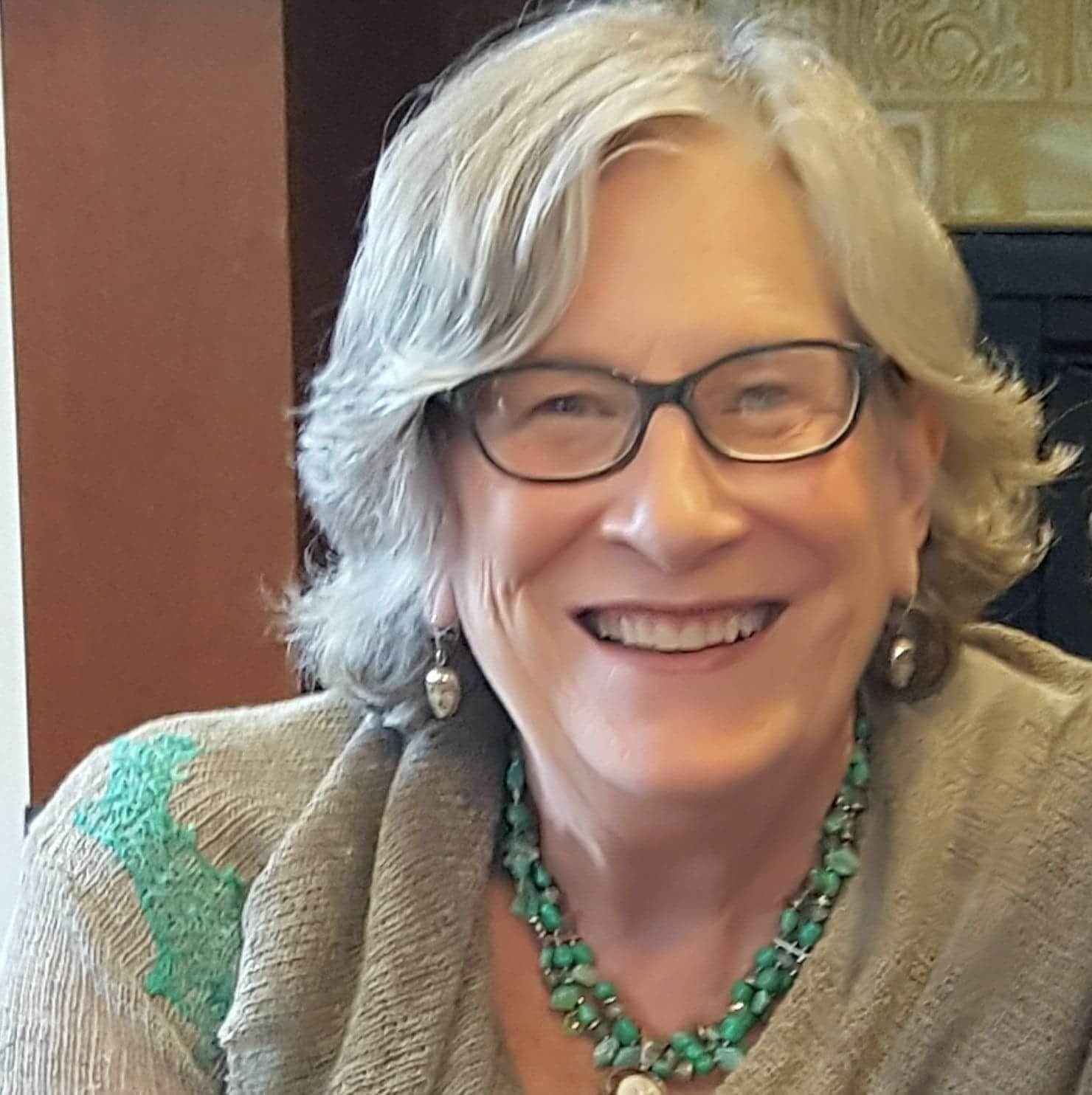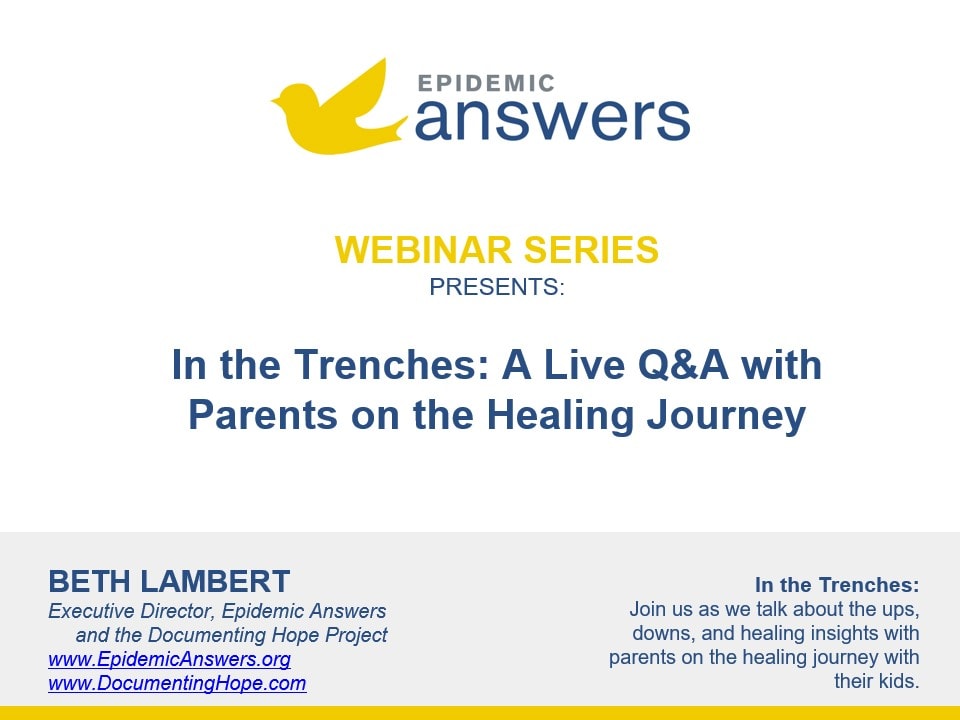Patricia S. Lemer, M.Ed., NCC, M.S. Bus., Chairman Emeritus, Epidemic Answers tells us that parents know their child best and why this matters.
Some of my clients’ testimonies inspired me to share with you “the best advice I ever got.”
Take Charge of Your Child’s Program
Don’t just wait for advice from professionals. Parents know their child best. While waiting to see the latest guru, you can easily begin a new regime:
- Change the diet by increasing good quality fats and reducing harmful fats and junk food.
- Increase daily movement activities, sleep, reading aloud.
- Reduce stressors, such as television and computer time.
Get Another Evaluation by a Different Professional
Just because you have explored an area of therapy doesn’t mean you have exhausted possible causes or received the best treatment. Professionals with the same broad titles offer different types and qualities of services. Doctors, lawyers, and yes, occupational therapists, eye doctors, speech/language pathologists and mental health professionals, all specialize. You need to find one who is both expert enough to meet your child’s needs and is right for you.
Go Outside the School for Evaluations and Services
School-based and clinic-based services differ markedly. Schools generally offer functional skills such as scissor use, handwriting and general motor coordination skills.
Schools are less likely than a clinic to offer sensory integration techniques – including vestibular and proprioceptive work. The latter two areas are essential for language, motor planning, academics and socialization.
Revisit Therapies and Interventions
Parents offered advice on revisiting therapies and interventions after a time:
- Kids graduate from occupational, vision and speech-language therapy after a few years.
- The supplements they are taking may be inadequate.
- Growth, experience, a better diet and hormonal changes can sometimes be very helpful to get to the next level.
- Expectations in middle and high school years are different from those for a younger child.
- Malleability does not end at childhood.
- In the next round, vision therapy moves from eye movements to visualization skills, while language therapy now emphasize pragmatics.
- New nutritional products can make a difference for your child.
Increase Therapy Time to Accelerate Progress
Once or twice a week therapy may be inadequate. To change the nervous system of a delayed child, a more intensive program could be the answer.
Wait on Academics
Postpone the introduction of reading, writing and mathematics instruction until skills are in place. Waiting until third or even fourth grade may result in quicker learning than tutoring before a child has basic sensory-motor and visual foundations. In the long run, patience saves time and money.
Be Forgiving with Social Skills
Of course, having an unruly, disobedient or ill-mannered child can be embarrassing for parents, but appropriate behaviors do show up when the sensory systems come together. Social skills training has its place, but again, you can save teaching time by waiting until the child’s system is ready.
Use Natural Alternatives to Prescription Medications
Dietary modification, vitamins, minerals, herbs, digestive enzymes, probiotics, anti-fungals, homeopathic remedies, craniosacral therapy, biofeedback, and other treatments can result in powerful changes, without side affects.
Never Give Up
No matter what, there is always something more you can do to help a child. Simply listening and providing a loving, sympathetic ear can be very therapeutic.
I have kept a few letters, and when I feel disheartened, I reread them. As the poster in my office stated, “100 years from now, my bank account, the sort of house I lived in, or the kind of car I drove will not matter, but the world may be different because I was important in the life of a child.”
If professionals in your past have made a difference, take the time to let them know what you found to be the “best advice you ever got.” Your feedback helps us help your children.
About Patricia S. Lemer LPC MEd
Patricia S. Lemer is a licensed professional counselor, holding a Masters of Education in counseling and learning disabilities from Boston College and a Masters in Business from Johns Hopkins University. She practiced as an educational diagnostician for over 40 years.
She was a co-founder and served as Executive Director of the international non-profit organization Developmental Delay Resources (DDR). After DDR merged with Epidemic Answers, she became Chairman of the Board. When she retired from the board, she became an emeritus board member.

She is the author of three books, the most recent of which is Outsmarting Autism, Updated and Expanded: Build Healthy Foundations for Communication, Socialization, and Behavior at All Ages (North Atlantic Books, 2019).
Lemer wrote over 50 editorials for "New Developments," the quarterly newsletter of Developmental Delay Resources (DDR), from 1995 - 2009. When DDR wound down, she wrote an online blog, "After the Diagnosis, Then What?" from 2009-2017. Her articles and blogs have been updated and archived on the Epidemic Answers website.
Since 2019, Patricia Lemer has recorded a bimonthly podcast, "The Autism Detective." In these hour-long shows, she interviews parents and professionals about their experiences in maximizing the potential of individuals on the autism spectrum. Over 100 episodes are available on Spotify and other online platforms. To learn more, go to PatriciaLemer.com and OutsmartingAutism.com
Still Looking for Answers?
Visit the Epidemic Answers Practitioner Directory to find a practitioner near you.
Join us inside our online membership community for parents, Healing Together, where you’ll find even more healing resources, expert guidance, and a community to support you every step of your child’s healing journey.




